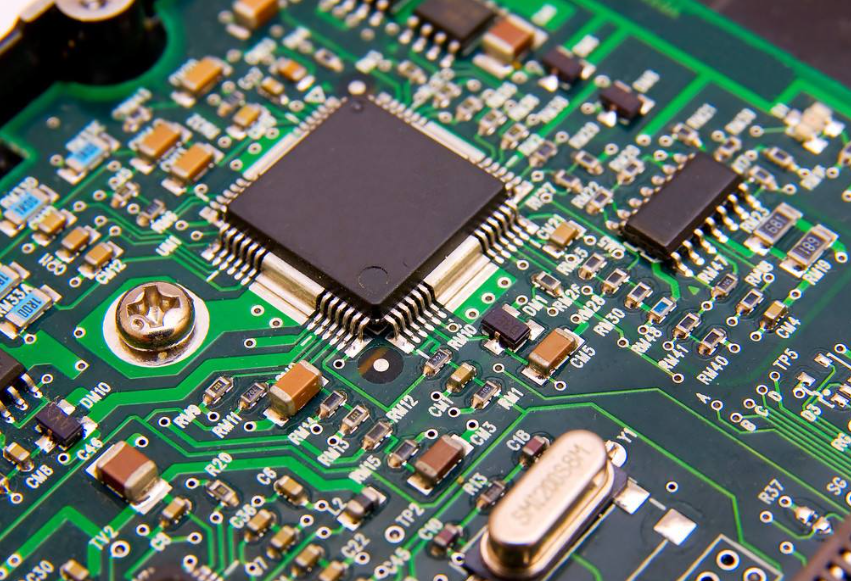connectors
2024-04-08 01:11:09
Connector Introduction
Connector is also called connector. Domestic also known as joints and sockets, generally refers to electrical connectors. That is, the device that connects two active devices to transmit current or signal.
The male end and the female end can transfer the message or current after contact, also called connector.
Connector advantages
1, improve the production process
Connectors simplify the assembly process of electronic products. Also simplifies the mass production process;
2, easy to repair
If an electronic component failure, equipped with a connector can quickly replace the failed component;
3、Easy to upgrade
With technological advances, equipped with connectors can update the components, with new, more perfect components instead of the old;
4、Improve the flexibility of design
The use of connectors so that engineers in the design and integration of new products, as well as components to form a system, there is greater flexibility.
Connector basic performance
1. Mechanical properties: in terms of connection function, insertion and extraction force is an important mechanical properties.
Insertion force is divided into insertion force and pull-out force (pull-out force is also known as separation force), the two requirements are different. In the relevant standards have the maximum insertion force and minimum separation force provisions, which indicates that, from the point of view of the use, the insertion force should be small (so that there is a low insertion force LIF and no insertion force ZIF structure), while the separation force is too small, it will affect the reliability of the contact.
Another important mechanical property is the mechanical life of the connector. Mechanical life is actually a durability (durability) indicators, in the national standard GB5095 called it mechanical operation. It is an insertion and a pull-out for a cycle, in order to specify the insertion and removal cycle after the connector can normally complete its connection function (such as contact resistance) as the basis for judgement. Connector insertion and extraction force and mechanical life and contact structure (positive pressure size) contact parts of the coating quality (sliding friction coefficient) and contact parts of the arrangement of dimensional accuracy (alignment).
2. Electrical properties: the main electrical properties of the connector including contact resistance, insulation resistance and electrical strength.
① contact resistance: high-quality electrical connectors should have a low and stable contact resistance. Connector contact resistance from a few milliohms to tens of milliohms.
② insulation resistance: a measure of the electrical connector between the contact parts and contact parts and the shell of the insulation between the indicators, the order of magnitude of hundreds of megohms to thousands of megohms ranging.
③ electric strength: or voltage, dielectric withstand voltage, is characterised by the connector between the contacts or contacts and the shell between the ability to withstand the rated test voltage.
④ other electrical properties: electromagnetic interference leakage attenuation is to evaluate the connector of electromagnetic interference shielding effect, electromagnetic interference leakage attenuation is to evaluate the connector of electromagnetic interference shielding effect, generally in the frequency range of 100MHz ~ 10GHz test.
For RF coaxial connectors, there are characteristic impedance, insertion loss, reflection coefficient, voltage standing wave ratio (VSWR) and other electrical indicators. Due to the development of digital technology, in order to connect and transmit high-speed digital pulse signals, a new class of connectors that high-speed signal connectors, accordingly, in terms of electrical performance, in addition to the characteristic impedance, there are some new electrical indicators, such as crosstalk (crosstalk), transmission delay (delay), time lag (skew).
3. Environmental performance: common environmental performance, including temperature, humidity, salt spray, vibration and shock.
① temperature: the current maximum operating temperature of the connector is 200 ℃ (except for a few high-temperature special connectors), the minimum temperature of -65 ℃. As the connector works, the current generates heat at the point of contact, resulting in temperature rise, so it is generally believed that the operating temperature should be equal to the ambient temperature and the sum of the temperature rise of the contact. In some specifications, it is clearly specified that the connector in the rated operating current under the maximum allowable temperature rise.
② Moisture resistance:The intrusion of moisture will affect the insulation performance of the connector and corrode the metal parts. Constant humidity and heat test conditions for the relative humidity of 90% to 95% (according to product specifications, up to 98%), temperature +40 & # 177; 20 ℃, the test time according to product regulations, at least 96 hours. Alternating humidity and heat test is more stringent.
③ salt spray: connector in the environment containing moisture and salt work, its metal structure, contact parts of the surface treatment layer may produce galvanic corrosion, affecting the physical and electrical properties of the connector. In order to evaluate the ability of the electrical connector to withstand this environment, the provisions of the salt spray test. It is the connector suspended in a temperature-controlled test chamber, with a specified concentration of sodium chloride solution with compressed air spray, the formation of salt spray atmosphere, the exposure time specified by the product specification, at least 48 hours.
④ vibration and shock: vibration and shock resistance is an important performance of the electrical connector, in special application environments such as aviation and aerospace, railway and road transport is particularly important, it is to test the mechanical structure of the electrical connector ruggedness and reliability of electrical contact important indicators. There are clear provisions in the relevant test methods. Peak acceleration, duration and shock pulse waveform should be specified in the impact test, as well as the time of electrical continuity interruption.
⑤ Other environmental performance: According to the use of requirements, other environmental performance of the electrical connector sealing (air leakage, liquid pressure), liquid impregnation (resistance to specific liquids), low air pressure and so on.
Connector production process
Overview of the connector process plug components of the production process mainly includes: parts of the manufacturing process and product assembly process.
Connector components are mainly composed of contact parts, insulation parts and structural components. Parts of the manufacturing process is mainly the three parts of the processing technology. Such as machining, stamping, injection moulding, die-casting, surface coating and so on.
With the increasing demand for plug-in components, parts of the production batch are larger. Therefore, the processing of parts should continue to improve the degree of mechanisation and automation, more efficient use of special equipment, and gradually realize the automatic production of plug-in components.
Contact with the car system or punching process. In the mass production, the car system with a longitudinal cut automatic lathe is the main direction is to use the composite multi-automatic machine tools, in the equipment to complete the multi-channel process, so as to avoid secondary processing of parts, in order to achieve the improvement of parts machining accuracy and production efficiency. For small batch production, available precision instrument lathe processing.
Stamping contact parts is characterised by high efficiency than the car system, but its accuracy is slightly lower than the car system. At present, due to the precision of moulds and stamping equipment is constantly improving, so the precision of punched contact parts has also been greatly improved. Adoption of the process: cold heading machine with the manufacture of pins, with multi-position punch manufacturing jacks, with the bending machine to manufacture reed-type contact parts and so on.
Plastic insulating parts according to its use of most of the requirements of thermoplastic plastic, can also be used thermosetting plastic. Thermoplastic insulation has been closed automated production, which is conducive to improving efficiency and reducing environmental pollution. Thermosetting plastic section also to use injection materials and processes are appropriate.
Structural parts have metal shell, plastic shell and other structural parts, the processing technology are die-casting, injection moulding, cold extrusion, extrusion casting and machining. The use of metamorphic aluminium alloy cold extrusion shell process, can achieve high strength, good precision, high efficiency and other processing benefits.
Connector common failure
Terminal common fatal failure in the form of the following three:
1. Poor contact
The metal conductor inside the terminal is the core parts of the terminal, it will come from the external wire or cable voltage, current or signal transmission to its matching connector corresponding to the contact parts. Therefore, the contact must have excellent structure, stable and reliable contact holding force and good electrical conductivity. As a result of the structural design of the contact parts is unreasonable, the material selection error, mould instability, processing size is too poor, surface roughness, heat treatment plating and other surface treatment process is unreasonable, improper assembly, storage and use of poor environmental conditions and improper use of the operation, will be in contact with the contact parts of the contact parts and with the parts caused by poor contact.
2. Poor insulation
The role of the insulator is to make contact with the correct position of the arrangement, and make contact with the contact between the contact, contact with the shell between the insulation. Therefore, the insulator must have excellent electrical properties, mechanical properties and process forming properties. Especially with the high-density, miniaturised terminals are widely used, the effective wall thickness of the insulator is getting thinner and thinner. This insulating materials, injection mould precision and moulding process put forward more stringent requirements. Due to the insulator surface or internal metal excess, surface dust, flux and other contaminants such as moisture, organic material precipitates and harmful gases adsorption film and the surface of the water film fusion to form an ionic conductive channel, moisture absorption, mould, aging of insulating materials, etc., will result in a short-circuit, leakage, breakdown, insulation resistance is low and other bad insulation phenomena.
3. Poor fixation
Insulators not only play an insulating role, usually also for the outstretched contact parts to provide accurate alignment and protection, but also has the installation of positioning, locking fixed in the equipment function. Fixed poorly, the light impact on the contact reliability caused by instantaneous power failure, the seriousness of the product disintegration. Disintegration refers to the terminals in the state of insertion, due to materials, design, technology and other reasons leading to unreliable structure caused by the plug and socket between the pins and jacks between the abnormal separation, will cause the control system power transmission and signal control interruption of the serious consequences. Poor fixing can be caused by unreliable design, wrong material selection, improper choice of moulding process, poor quality of heat treatment, mould, assembly, fusion welding and other processes, and poor assembly.
In addition, due to plating peeling, corrosion, bruising, plastic shell flying edge, rupture, contact parts processing roughness, deformation and other reasons caused by the poor appearance, due to the positioning of the locking with the dimensions of the super poor, poor consistency of quality of processing, the total separation force is too large and other reasons caused by the poor interchangeability, but also a common disease, the occurrence of disease. These kinds of faults can generally be found in the inspection and use of the process of timely elimination.

















